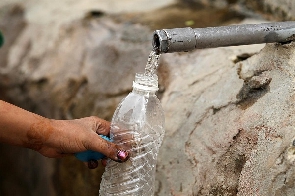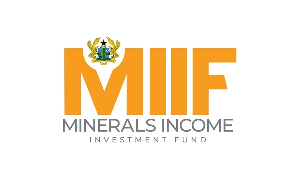In a sobering analysis of Ghana's 2024 budget, WaterAid Ghana highlights a concerning 68% reduction in the allocation for the Ministry of Sanitation and Water Resources (MSWR) compared to the previous year. The total budget for MSWR plummeted from GHs 1,847,454,545 in 2023 to a mere GH 591,052,380 in 2024.
This drastic reduction is primarily attributed to a staggering 76% decrease in funding from Development Partners (DPs), overshadowing a modest 10% increase in the government's contribution. Such a significant drop in DP contributions underscores a heavy dependence on external funding, with DPs still constituting 68% of the total sector budget.
The implications are dire, particularly as 83% of capital expenditure (CAPEX) within the sector relies on DPs. WaterAid Ghana expresses deep concern over the potential impact on fundraising capabilities and emphasises that achieving Sustainable Development Goal (SDG) targets for Water, Sanitation, and Hygiene (WASH) by 2030 now appears increasingly challenging.
The analysis also sheds light on historical challenges, including lackluster fund releases for WASH programs, especially from the Government of Ghana. Despite marked successes in compensating employees, other aspects of the sector face financial constraints.
Moreover, within the broader context of the 2024 budget, WASH is allocated a mere 0.8% of the total budget for flagship programmes, with Road Infrastructure and Education receiving a disproportionate 38% and 45%, respectively.
Situating the analysis within the context of the recently launched Ghana Water Supply, Sanitation, and Hygiene Sector Development Programme (GWASHSDP) raises more concerns about Ghana’s ability to achieve SDG targets for WASH by 2030.
The estimated annual cost of US$1.7 billion, covering critical areas such as water resources management, urban and rural water supply, sanitation, hygiene, and institutional development, underscores the financial magnitude required for success. There is a variance between the budgetary allocations for WASH in the 2024 budget and the estimated annual cost of WASH investments in the GWASHSDP.
WaterAid Ghana emphasises that such inadequate allocation is not commensurate with the sector's importance, and it raises doubts about the nation's commitment to achieving international goals. Despite Ghana crossing the GHS1 trillion budgetary mark, only 0.06% of the Gross Domestic Product (GDP) is allocated for WASH initiatives, significantly below international commitments.
WaterAid Ghana calls for immediate action on several fronts:
1. Urgent Funding Increase: WaterAid Ghana urges the government to augment funding for WASH under the MSWR, aligning it with policy aspirations, targets, and the SDG6 target.
2. Transparent SPL Management: Advocacy for the development of a clear framework to manage the Sanitation and Pollution Levy (SPL) and calls for transparency in inflows and disbursements.
3. Accelerated Sector Reforms: Emphasis on the need to expedite ongoing WASH sector reforms, including the Community Water and Sanitation Agency reforms, new water policy implementation, Environment and Sanitation Policy review, and the establishment of the National Sanitation Authority with its accompanying sanitation fund.
4. Equal Priority for WASH: Advocacy for WASH to receive equal priority as Road Infrastructure and Education within the flagship programmes.
5. Increased Sector Funding: A call for the government to amplify investment in sanitation at household and school levels, aligning it with international commitments for the WASH sector.
WaterAid Ghana warns that a failure to address these concerns promptly could have severe repercussions, jeopardising Ghana's progress towards achieving critical WASH-related SDGs. The call to action underscores the urgent need to redirect efforts and resources towards sustaining and advancing the WASH sector in Ghana.
Business News of Wednesday, 13 December 2023
Source: WaterAid Ghana













